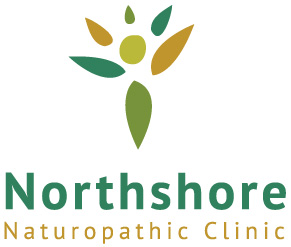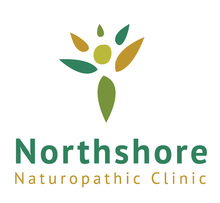By Dr. Matsen/Irene Hayton
While most people know about vitamins A, B, C, D, and E, few are aware that vitamin K exists. Best known for its role in blood clotting, the often-overlooked vitamin K is actually an essential nutrient that has many health benefits.
There are two main natural forms of vitamin K. Vitamin K1, also known as phylloquinone, is found in dark green leafy vegetables such as spinach, collard greens, lettuce, broccoli, kale, etc. It’s primarily used in the liver to activate blood-clotting proteins.
When humans and other mammals consume vitamin K1, part of it is converted into vitamin K2 or menaquinone. Vitamin K2 is also found in fermented foods such as natto, a traditional Japanese food of fermented soybeans. Natto has a slimy texture and is an acquired taste. Fermented foods provide more vitamin K2 than leafy green vegetables. Other food sources of vitamin K2 include fish eggs, shellfish, and organ meats and butter from cows that eat rapidly growing green grass; it’s not present in cows that are fed soy-based feeds or cottonseed meal. The human body’s beneficial intestinal bacteria also produce some vitamin K2 but this form is not well absorbed.
Vitamin K plays several beneficial roles other than blood clotting. Whereas vitamin K1 works primarily in the liver, vitamin K2 works primarily in the bones, teeth, and blood vessels.
Vitamin K2 is essential for bone health; it preserves or improves bone density, making them stronger and less prone to fracture. Studies show that supplementation with vitamin K2 reduced bone loss and significantly reduced the risk of fractures. It does this by activating proteins that are responsible for binding calcium and incorporating it into the bones. Osteoblasts, the cells that lay down the calcified matrix of bone, secrete a protein called osteocalcin, in response to vitamins A and D. Osteocalcin is responsible for the deposition of calcium and phosphorus salts in bones and teeth, but it only works once it is activated by vitamin K2.
Vitamin K2 also plays an important role in dental health, since osteocalcin helps to strengthen the teeth. The salivary glands contain the second highest concentration of vitamin K2 in the body (the pancreas has the most).
In addition to placing calcium where it’s needed, in the bones and teeth, vitamin K2 keeps calcium out of where it doesn’t belong, in the blood vessels and other soft tissues of the body, thereby helping to prevent hardening of the arteries, which is a common risk factor in heart failure and coronary artery disease. Vitamin K2 activates another important protein called matrix Gla protein (MGP), which protects the arteries from calcification.
The brain contains a high concentration of vitamin K2 and research suggests that it plays an essential role in the brain and nervous system. “Vitamin K2 supports the enzymes within the brain that produce an important class of lipids called sulfatides. The levels of vitamin K2, vitamin K-dependent proteins and sulfatides in the brain decline with age; the decline of these levels is in turn associated with age-related neurological degeneration. Comparisons of human autopsies associate the early stages of Alzheimer’s disease with up to 93 percent lower sulfatide levels in the brain.” 1
While more research is necessary, preliminary studies are showing that vitamin K2 may provide additional health benefits. It may also: have antioxidant properties; play a role in improving the skin by protecting skin elasticity; and be effective against cancer—test-tube studies have shown that it induces apoptosis (cellular “suicide) and slows growth in several types of cancer cells.
The typical diet does not contain very much vitamin K2, not even if it includes the richest food sources of this vitamin, such as natto. There are two forms of vitamin K2 available as supplements: menaquinone-4 (MK-4) and menaquinone-7 (MK-7). MK-4, also known as menatetrenone, is the form that has been used in many of the research studies. Because it’s a fat-soluble vitamin, vitamin K2 must be taken with fat in order to be absorbed properly. Those who are pregnant or nursing, those who have experienced stroke or heart attack, and those who are taking blood-thinning medications like warfarin (Coumadin®) should consult with their health care practitioner before taking vitamin K2.
It’s important to note that vitamin K1 does not provide the same benefits as vitamin K2 and, even though the body can convert K1 into K2, the amount that can be converted is limited and this ability is further reduced with aging.
Dr. Weston A. Price was a Cleveland dentist who studied isolated non-industrialized human groups all over the world in the 1930s and wrote about his findings in his book Nutrition and Physical Degeneration. He found that these “primitives” who ate their traditional diets rich in essential nutrients had straight, beautiful teeth free of dental decay as well as strong, healthy bodies and resistance to diseases that are common among those who eat the typical Western diet of refined foods.
In 1945, Dr. Price discovered a “new vitamin-like activator” that he called Activator X which played “an influential role in the utilization of minerals, protection from tooth decay, growth and development, reproduction, protection against heart disease and the function of the brain.” Activator X, also referred to as X factor or the Price factor, is now believed to be vitamin K2. He found that Activator X works synergistically with vitamins A and D, which “signal to the cells to produce certain proteins and vitamin K then activates these proteins.” For a detailed account of Dr. Price’s findings on Activator X by Chris Masterjohn, see http://www.westonaprice.org/basicnutrition/vitamin-k2.html.
References: On the Trail of Elusive X-Factor: A Sixty-Two-Year-Old Mystery Finally Solved, by Chris Masterjohn (see link above).


